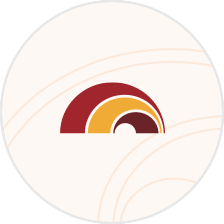7 Questions to Ask Your Mortgage Lender
[X] min read
Posted on Dec 04, 2024

Whether you’re a first-time homebuyer, looking to upgrade to a larger home, or refinancing an existing home loan, obtaining a mortgage can be stressful and complicated. To make your home buying process as seamless as possible, it’s important to do your research and have a list of questions ready.
Here are seven of the most common and important questions to ask your mortgage lender.
What is the right type of mortgage for me?
There are many factors that go into deciding what type of mortgage is best for you. You should consider whether you’d like a fixed or adjustable rate mortgage, how much you want to borrow and the length or term of the loan. Additionally, you might consider whether a conventional or government-backed mortgage is right for you. Not familiar with these concepts? Here’s a breakdown of the different types of loans you might consider when buying your next home.
- Fixed-Rate Mortgage: The interest rate for a borrower’s loan is set at the beginning of the loan term and cannot be changed. Get more details about a fixed-rate mortgage from First Hawaiian Bank.
- Adjustable-Rate Mortgage (ARM): The interest rate is periodically adjusted based on an index and margin. Check out the latest ARM rates and learn more about ARMs from First Hawaiian Bank.
- Government-Backed Loans: Loans insured by a government agency. Examples of these loans could be Federal Housing Administration (FHA) loans or Veteran Administration (VA) loans. These loans typically have more lenient credit score requirements but may have restrictions and additional fees.
- Conventional Loan: Loans underwritten to Fannie Mae/Freddie Mac loan guidelines. They are issued by private lenders like First Hawaiian Bank and typically have better interest rates and flexible loan options with down payments as low as 3%. Conventional loans have maximum loan amounts known as the conforming loan limit. This is set the Federal Housing Finance Agency (FHFA) and loan limits can vary by county.
- Conforming Loan: These are loans equal to or less than the amount set by the Federal Housing Finance Agency. For borrowers with good credit, conforming loans can have low interest rates.
- Jumbo Loan: Exceeds the loan limit established by Freddie Mac and Fannie Mae. Due to the high loan limit, borrowers are expected to have stellar credit scores and put down a larger down payment. Learn more about the Jumbo Loans from First Hawaiian Bank. We also have a special Jumbo Loan specifically for eligible medical professionals too.
- VA Loan: Qualified military professionals can enjoy special rates and benefits through a VA loan. Learn about VA Loans at First Hawaiian Bank.
- Land Loan: Loans to finance your land purchase or refinance residential land. Ask whether it can be converted to a construction loan once you’re ready to build.
- How do I qualify for a mortgage loan?
Before a borrower is approved for a mortgage, the lender will assess the borrower’s credit history, debt-to-income ratio, income, ability to place a down payment, and other eligibility criteria. The threshold for each of these categories will vary, depending on the type of loan and the lender. - How much can I afford to borrow?
The amount you can afford to borrow depends on your income, debt, and assets. Mortgage lenders will look at these factors to determine the size of the loan you can qualify for. Conducting a review of your finances to assess whether you’re ready to buy a house is a good first step. A general rule of thumb is to follow the 28%/36% rule, which means do not spend more than 28% of your gross annual income on housing costs and no more than 36% on debt (including housing, credit card, student loans, etc.). This is typically a good rule to follow when dealing with conventional loans. - How much money do I need for a down payment?
Depending on the type of loan, down payments can range anywhere from zero to over 20% of the value of your home. Some government-backed loans, like VA or USDA loans, do not require a down payment when purchasing a home. On the other hand, if you qualify for a conventional loan, then the minimum down payment can be as low as 3% depending on your qualifications. However, making a higher down payment can be beneficial in the long run by decreasing your monthly mortgage payments and avoiding additional fees and insurance. - How many discount points are included in the interest rate?
Discount points, also known as mortgage points, are interest fees paid to the lender at closing in exchange for a lower interest rate. Make sure you ask your lender how many points are included in your quoted interest rate, if applicable. - How can I find out what my closing costs are?
Closing costs consist of various fees, insurance, taxes, and upfront interest, or points. Prior to closing your loan, you will receive a Closing Disclosure which will list out all your costs. - How long will it take to close?
Closing times vary. Asking your mortgage lender for an estimated timeframe can help you plan accordingly. Be sure to keep in close contact with your lender because delays can happen.
Buying a home is a huge milestone. If you do your research and are not afraid to ask questions, you’ll be on your way to closing in no time.
At First Hawaiian Bank, our team of experienced mortgage loan officers are ready to help. Contact us today to get started.
Was this helpful?
Thank you for the feedback








